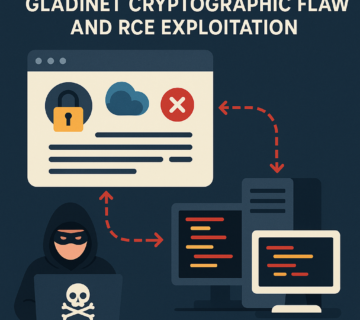
Enterprise Security: Defend, Detect, Prevail
Enterprise security is the backbone of modern business operations, protecting critical assets, data, and systems from internal and external threats. As cyberattacks grow more sophisticated, organizations must adopt a multi-layered defense strategy, including firewalls, endpoint protection, zero trust models, and real-time threat detection. Strong enterprise security ensures compliance, safeguards customer trust, and prevents costly disruptions. From securing cloud infrastructures to managing employee access, proactive security measures help mitigate risks before damage occurs. Today’s enterprises can’t afford to be reactive—security must be a continuous, strategic priority. Build resilience with enterprise-grade solutions that adapt to evolving threats and ensure operational continuity.


CrashFix Attacks: New Browser-Crashing Malware Threatens Users Through Fake Ad Blockers

SOC 2 Compliance Made Simple: IT Controls Every Business Needs in 2026

Hackers Exploit Gladinet CentreStack Cryptographic Flaw in RCE Attacks: What IT Leaders Need to Know
